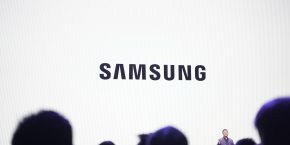
Samsung today posted a 26-percent drop in Q2 profits because its television and semiconductor operations are shrinking. Profits fell to 3.7 trillion won, or about $3.5 billion, versus 5.01 trillion in the year-ago quarter. The drop is being blamed on Samsung’s flat panel unit which is bleeding money for a second consecutive quarter now. Because demand for 3D TVs and consumer electronics in general is weakening, Samsung’s flat panel division has generated an operating loss of 73.5 billion won ($69.1 million) in the second quarter, Bloomberg explains. Just a year ago, the same unit profited 880 billion won (about $827 million). Slim margins and low prices in the cut-throat television business don’t help either. A Kiwoom Securities Co. analyst Kim Sung In slammed the company:
Only the phone business is holding up. Everything else is looking bad. There’s no bright picture for the company looking ahead.
Maybe the flat panel division will recover if Apple brings out an intelligent, networked television set in 2012 using flat panels from Samsung? It’s all peachy for their mobile devices unit which has benefited from strong smartphone and tablet sales. A recent comScore survey put Samsung as the #1 smartphone brand in the US that accounted for 24.8 percent share of all mobile phone subscribers aged 13 and up. What about other metrics?
Their Galaxy S II smartphone sold three million units so far and they shipped 19.2 million smartphones in total during the quarter. IDC pegged Samsung’s share of the global smartphone market to 10.8 percent in the first quarter, a big jump over the 4.3 percent a year earlier. Samsung is still aiming to ship 60 million smartphones in the 2011 calendar year. However, if Microsoft manages to squeeze ten bucks per each Android smartphone Samsung sells, that unit could expect royalties potentially in the range of hundreds of millions of dollars annually. Being a vertically integrated company, however – they do their own operating system (Bada, excluding Android) and apps, design hardware and even make chips and electronic components themselves – Samsung is able to withstand additional costs and pricing pressures better than most rivals, with the exception of Apple whose margins on mobile devices are in the 50 percent range. Samsung is a supplier of processors, RAM chips and flat panels for iOS devices and Macs and Apple is their largest buyer. In response to the losses, Samsung recently consolidated operations by merging component and manufacturing businesses, effectively hiding losses of the display business among the lucrative semiconductor operations.
FTC: We use income earning auto affiliate links. More.


Comments